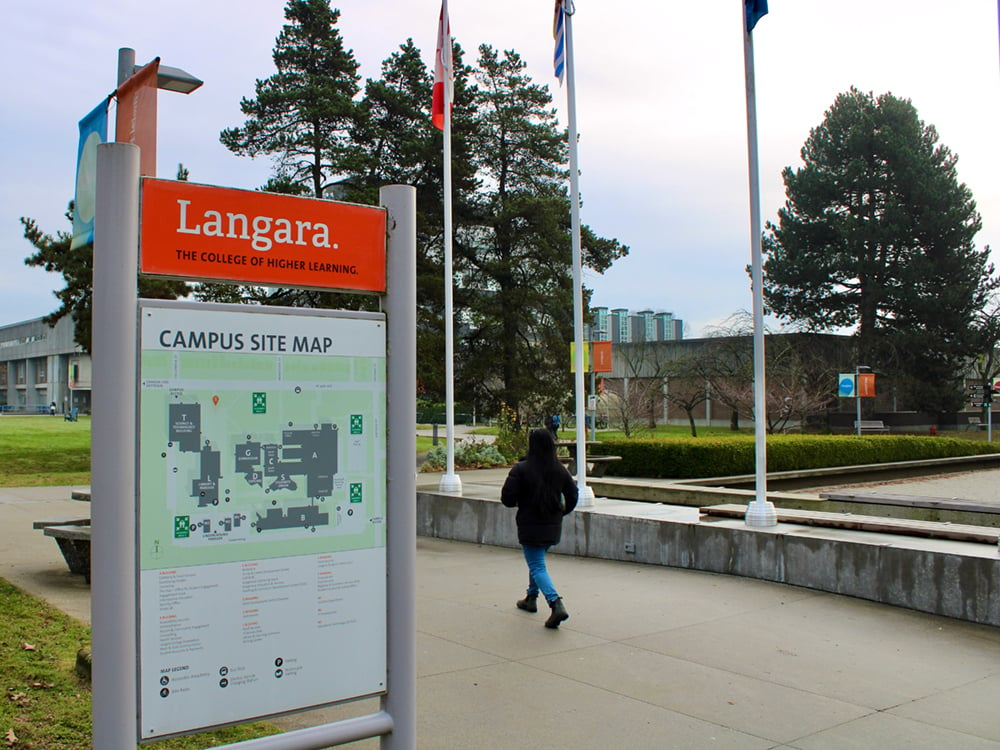Education
International Students Seek Alternatives as B.C. Enrolment Declines

As British Columbia’s universities and colleges prepare to welcome students back this fall, many international learners are notably absent. This shift follows significant changes in federal immigration policy impacting international student permits. These adjustments have created challenges for public post-secondary institutions in the province, as they struggle to attract international enrolments.
Of the 25 public post-secondary institutions in B.C., 19 responded to inquiries from The Tyee regarding their international student enrolment for the fall 2025 semester. Only two institutions, the University of British Columbia and the University of Victoria, reported that they successfully enrolled the number of international students they had aimed for. The British Columbia Institute of Technology indicated it had not yet reached its international student quota but remained optimistic about meeting it. In contrast, 11 institutions, including Kwantlen Polytechnic University and Okanagan College, anticipated a shortfall in international student enrolment compared to their capacity.
The situation is not uniform across institutions. While some schools, like the Justice Institute of British Columbia, focus primarily on training local public safety professionals, others depend heavily on the tuition from international students to subsidize domestic tuition rates. An emailed statement from Emily Carr University of Art + Design noted, “This year’s application volume is lower than in previous cycles, which speaks to the impacts of the federal immigration policy changes.”
Changes in Immigration Policy Create Barriers
Previously, the application process for international students was relatively straightforward. Once accepted into a Canadian institution, students would apply for a study permit through Immigration, Refugees and Citizenship Canada. This included demonstrating access to a minimum of $10,000 for living expenses alongside tuition costs.
However, the landscape shifted with the introduction of provincial attestation letters, known as PALs. These letters are now a prerequisite for applying for study permits, and their allocation is subject to provincial quotas. This change has led to delays, with many students unable to secure their study permits in time for the start of classes, forcing them to defer or drop out of their programs.
A spokesperson for Okanagan College confirmed the decline in international applications for the fall 2025 semester compared to previous years, stating, “It is unlikely that the College will require all of the PALs that have been allocated for this year.” This trend is not confined to British Columbia; Universities Canada recently reported a nationwide drop in international student enrolment below government targets.
Financial Implications for Institutions and Local Economies
The financial impact of reduced international enrolments is significant. International students typically pay higher tuition rates, averaging $32,909 per semester in the 2022-23 academic year—426 percent more than domestic students, according to the BC Federation of Students. In previous years, international tuition accounted for nearly half of the total tuition revenue for B.C.’s post-secondary institutions, despite making up just 20 percent of the student population.
As provincial funding for public post-secondary institutions has declined, now constituting only 40 percent of total revenue—down from 68 percent in 2000—the reliance on international students has intensified. This shift affects not only institutional finances but also the local economy. In 2022, international students contributed an estimated $7.5 billion to B.C.’s economy, supporting approximately 80,000 jobs.
In rural communities, international students have historically represented a substantial portion of the workforce, filling vacancies in various sectors. Laurie Waye, president of Coast Mountain College, emphasized the importance of these students for maintaining viable class sizes and meeting local labour needs. Without them, she expressed concern over the province’s ability to fill an anticipated one million new job openings over the next decade.
The recent policy changes, including increased financial requirements for international students and restrictions on work permits, have further complicated the situation. The Immigration, Refugees and Citizenship Canada spokesperson noted that these adjustments are intended to align with the country’s long-term economic needs.
As the landscape for international students continues to evolve, both Waye and Phil Ollenberg, associate faculty at Royal Roads University, stress the need for the federal government to consult with provincial authorities when making changes to immigration policies. They advocate for a collaborative approach that considers local economic conditions and the specific needs of educational institutions.
In the absence of such measures, institutions like Langara College have already begun to experience financial strain, resulting in layoffs and program cuts due to declining international student numbers. Meanwhile, Minister of Post-Secondary Education and Future Skills Jessie Sunner has raised concerns about the impact of abrupt policy shifts on student recruitment and retention.
The future of international student enrolment in British Columbia hangs in the balance as institutions grapple with the consequences of federal immigration policy changes and the need for a more sustainable approach to international education.
-

 Lifestyle2 weeks ago
Lifestyle2 weeks agoChampions Crowned in Local Golf and Baseball Tournaments
-

 Science2 weeks ago
Science2 weeks agoMicrosoft Confirms U.S. Law Overrules Canadian Data Sovereignty
-

 Education2 weeks ago
Education2 weeks agoRed River College Launches New Programs to Address Industry Needs
-

 Technology2 weeks ago
Technology2 weeks agoDragon Ball: Sparking! Zero Launching on Switch and Switch 2 This November
-

 Technology2 weeks ago
Technology2 weeks agoWorld of Warcraft Players Buzz Over 19-Quest Bee Challenge
-

 Technology2 weeks ago
Technology2 weeks agoGoogle Pixel 10 Pro Fold Specs Unveiled Ahead of Launch
-

 Science2 weeks ago
Science2 weeks agoChina’s Wukong Spacesuit Sets New Standard for AI in Space
-

 Science2 weeks ago
Science2 weeks agoXi Labs Innovates with New AI Operating System Set for 2025 Launch
-

 Science2 weeks ago
Science2 weeks agoTech Innovator Amandipp Singh Transforms Hiring for Disabled
-

 Technology3 weeks ago
Technology3 weeks agoNew IDR01 Smart Ring Offers Advanced Sports Tracking for $169
-

 Technology2 weeks ago
Technology2 weeks agoGlobal Launch of Ragnarok M: Classic Set for September 3, 2025
-

 Technology2 weeks ago
Technology2 weeks agoHumanoid Robots Compete in Hilarious Debut Games in Beijing
-

 Technology2 weeks ago
Technology2 weeks agoFuture Entertainment Launches DDoD with Gameplay Trailer Showcase
-

 Health2 weeks ago
Health2 weeks agoB.C. Review Urges Changes in Rare-Disease Drug Funding System
-

 Health2 weeks ago
Health2 weeks agoRideau LRT Station Closed Following Fatal Cardiac Incident
-

 Technology2 weeks ago
Technology2 weeks agoInnovative 140W GaN Travel Adapter Combines Power and Convenience
-

 Science3 weeks ago
Science3 weeks agoNew Precision Approach to Treating Depression Tailors Care to Patients
-

 Business2 weeks ago
Business2 weeks agoNew Estimates Reveal ChatGPT-5 Energy Use Could Soar
-

 Health2 weeks ago
Health2 weeks agoGiant Boba and Unique Treats Take Center Stage at Ottawa’s Newest Bubble Tea Shop
-

 Technology3 weeks ago
Technology3 weeks agoDiscover the Relaxing Charm of Tiny Bookshop: A Cozy Gaming Escape
-

 Technology2 weeks ago
Technology2 weeks agoBorderlands 4 Promises Massive Changes with 30 Billion Guns
-

 Science2 weeks ago
Science2 weeks agoNew Study Reveals Surprising Impact of Gratitude on Helping Behaviors
-

 Technology2 weeks ago
Technology2 weeks agoQuoted Tech Launches Back-to-School Discounts on PCs
-

 Lifestyle2 weeks ago
Lifestyle2 weeks agoVancouver’s Mini Mini Market Showcases Young Creatives










